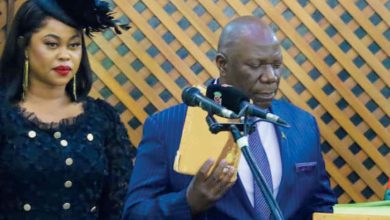Malawi’s fiscal crisis continues to deepen
Malawi’s economic stability remains under intense strain, with the latest World Bank assessment warning that persistent fiscal deficits, rising inflation and chronic foreign exchange shortages are fuelling macroeconomic crises.
The World Bank’s Macro Poverty Outlook projects that the fiscal deficit will widen further to 12.6 percent of gross domestic product (GDP) in 2025, the highest in southern Africa, as election-related spending, weak revenue mobilisation and mounting debt repayments continue to weigh heavily on the 2025/26 National Budget.
The bank said total public debt has exceeded 90 percent of GDP, which is the highest since the pre-Heavily Indebted Poor Countries (Hipc) era, while inflation remains elevated at 28.7 percent.
The report paints a gloomy picture,
noting that fiscal overruns, weak oversight and unsustainable domestic borrowing have driven debt-service obligations to consume nearly 40 percent of domestic revenue projected at K4.4 trillion this fiscal year.

Reads the report in part: “Interest payments on Treasury bills and bonds have crowded out development expenditure and private-sector credit, leaving limited fiscal space for productive investment.”
The Bretton Woods institution warns that if current trends persist, the fiscal deficit could rise to 13.3 percent of GDP in 2026, further elevating debt-servicing costs and increasing reliance on costly domestic borrowing.
Inflation rate at 28.7 percent is expected to remain high up to next year, driven by rising food and fuel prices and a rapid expansion of money supply, which grew by 49 percent in July 2025 alone, according to the bank.
Gross official reserves, the amount
of forex under the direct control of the central bank, remain below one month of import cover while per capita income has declined for the fourth consecutive year.
Economists say these trends reflect a deep-seated structural crisis rather than short-term shocks.
In an interview yesterday, Centre for Social Concern (CfSC) economic governance officer Agnes Nyirongo warned that political spending and weak fiscal control mechanisms are aggravating Malawi’s financial distress.
She said the widening fiscal deficit reflects a recurring pattern of election-period overspending and institutional fragility.
Said Nyirongo: “This is not simply a budgeting error, but it is a symptom of deeper structural and governance problems.
“Unrestrained spending during election periods, weak oversight and poor revenue performance has created a systemic crisis that threatens debt sustainability and the delivery of essential services.”
Economist Gilbert Kachamba said yesterday that the widening trade deficit and declining reserves “present a serious threat to macroeconomic stability in the short to medium-term”.
With total forex reserves now covering only 2.1 months of imports, he warned: “Malawi faces heightened vulnerability to external shocks, including fuel price volatility and exchange-rate pressures.”
Kachamba said persistent weaknesses in export earnings, particularly from tobacco, highlight deep structural issues in the country’s trade composition.
He said: “Global demand for tobacco continues to decline, while low productivity and limited value addition constrain competitiveness.
“Malawi needs a strategic shift towards diversified, higher-value exports such as horticulture, agro-processing and niche manufacturing.”
Ministry of Finance, Economic Planning and Development data show a cumulative deficit of K1.03 trillion between April and August this year, which is equivalent to almost half of total government revenue over the same period.
CfSC has since urged authorities to curb runaway deficits, enforce spending limits and full implementation of the Integrated Financial Management Information System





